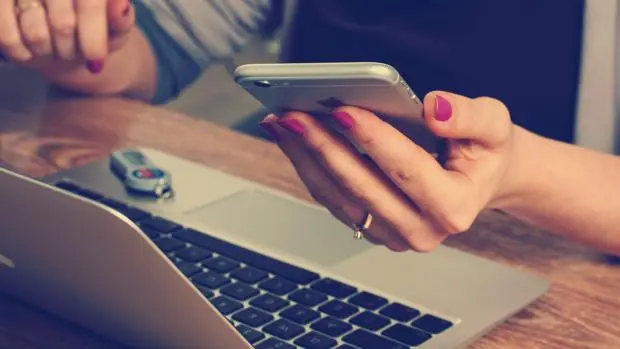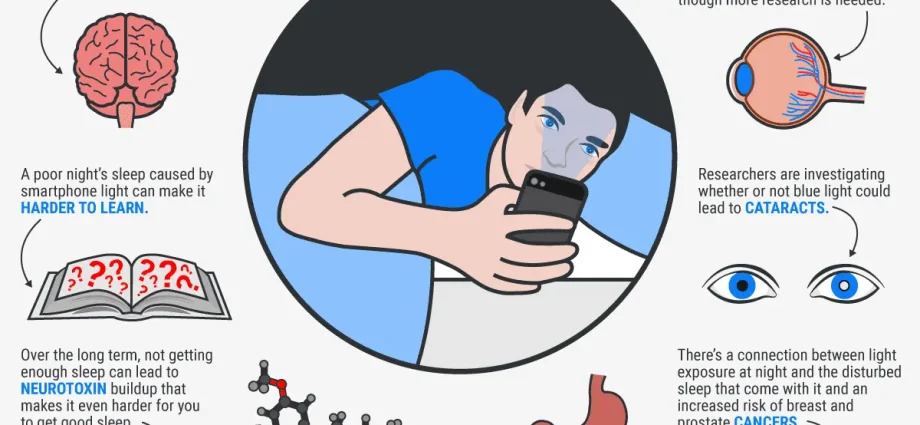Contents
This is what excess screens and blue light do to your body
Healthy habits

If we normally use the mobile and we are in front of a computer many more hours than we should, since the beginning of the confinement stemming from the coronavirus crisis these moments have increased exponentially: there are those who, from the moment they open their eyes to the time they go to sleep, do not detach themselves from a screen.
Teleworking, connecting with our loved ones and much of our leisure are directly related to electronic devices. Therefore, now more than ever we must strive to control its use for the benefit of our health.
Being overexposed to screens has more detrimental aspects than it first seems. Rafael San Román, psychologist at the ifeel platform, highlights the impact that this use has on the «purely physical» factor, such as its negative impact on our eyesight (the need to force it before small screens or their brightness) or the overstimulation that it generates in our brain. The psychologist Gabriela Paoli, for her part, talks about how our postural hygiene is affected, which can lead to pain, for example in the cervical or lower back area, as well as headaches or numbness of the body in general.
The professional emphasizes that, by affecting our sleep hygiene, the screens create a chain that has an impact on almost all levels of our life. «We use the computer all day, to work, to talk with our family, to watch movies and series. This, because our sleep hours are «vampirized», affects the quality of our rest and worsens it », says the expert and continues:« By sleeping less it is more difficult for us to face our day to day: we begin to eat worse, we exercise less and have worse spirits. Little by little it affects the total of our quality of life ».
Be over-informed
Another risk derived from the use of screens, especially in these times of coronavirus, is the “Information intoxication”. This occurs when we feel bombarded by an almost endless amount of news. Even so, the ifeel psychologist warns that many times the problem is not the large amount of news, but rather that «we get intoxicated because we inform ourselves with false information, or with information of false utility, that is to say, we misinform ourselves ». “That, both in small doses and in abundance, is not overinformation, but misinformation,” he asserts.
When it comes to reducing daily screen use, both psychologists agree that we must do so consistently and not make drastic decisions. «The thing is not that we have to isolate ourselves in a capsule unrelated to any item on the situation we are living, simply we must dose, be more selective, more critical, less impulsive or reactive ”, explains Rafael San Román.
Limit “digital entertainment”
For her part, Gabriela Paoli explains that we must understand that, in these moments of quarantine, “we are in survival mode”, so we must contextualize the situation and understand that it is normal for us to use more mobile phones, computers and spend more hours in front of the television . “Must use the networks for our benefit. If we spend a large part of the day teleworking and then your leisure time is digital, you never take off, “he warns and recommends trying to carry out other activities. “Just going out to the balcony or looking out the window for a while, exercising, drawing, playing an instrument … anything is good,” he says and recommends not spending more than two hours a day on “digital leisure.”
Rafael San Román recommends trying to establish a limit for the use of these screens. “Is about put order in my habits through relatively simple behaviors to comply with ». Gabriela Paoli gives the advice of downloading an application that shows us the time we spend a day on our mobile, to be able to be aware of the number of hours that they represent in our day. «Can I dive, even splash, on my social networks? Sure, a little bit a day. Can I watch the news? Sure, one, not three plus its by-products. They should not be drastic decisions, if not simple, “concludes Rafael San Román.










